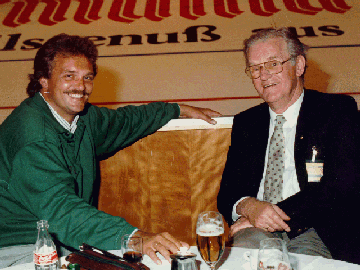2nd generation
Herbert Schürmann
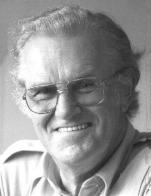
1953 – 1990
Velodrome and Cycle-Track Architect
Herbert Schürmann was born in Münster/Germany in 1925 into a family, which was strongly dedicated to the track cycling sport.
After his POW time in England he could start his "cycling career" only in his 20es and it was rather short and limited to local competitions.
At this time -after winning a race- he had to give back the winner flowers after the ceremony to the organizers ("Sorry, Herbert, but we only have one bunch-of-flowers for all the winners of today"). Such were the after-war-times in Germany.
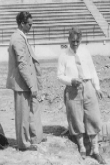
Herbert first learned the profession of a carpenter and later studied engineering and architecture with very good results.
As a young architect he started to build housing in his very much destroyed home town.
But of course he did not loose the contact to the cycling scene and when his father Clemens suffered a stroke, he joined his father's architects office in order to continue the tradition.
Until his father died, Herbert worked together with him on several tracks and learned all about tracks in praxis and in theory.
Had his father Clemens worked only in Central Europe, Herbert spread the business of designing cycle tracks all over the world.
Not only did he build the tracks for the Olympic Games in Rome (1960), Mexico City (1968), Munich (1972), Seoul (1986) and Barcelona (1990), but also for many Continental or other Games and Championships.
He improved his father's construction methods by own experiences and adaptation of more modern engineering achievements.
Following the family philospohy, the design of each track itself though was still done by hand and remained unique.
Together with the UCI (International Cycling Union) he worked out and set up the regulations for the design of cycle tracks.
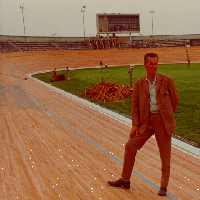
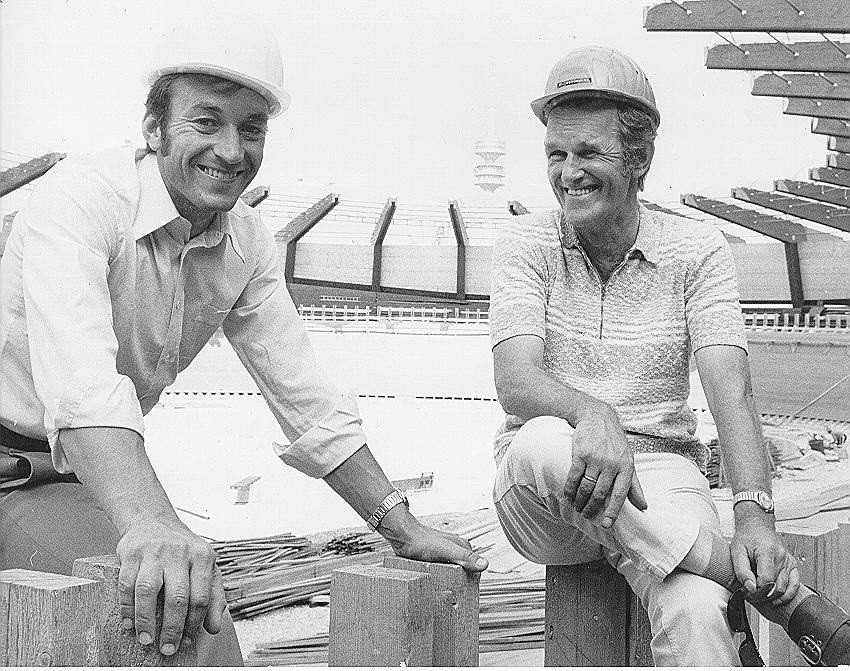
His big fight was for shorter track length's.
In the beginning there were only official tracks with length's of 400 or 333 m. Herbert found it always unattractive and also too expensive to compete only on such long tracks.
Thanks to also his constant effort the official track length's were first reduced to a minimum of 285 m (3 1/2 laps for 1 kilometer) and later to the today's minimum length of 250 m.
Herbert's life was the cycling sport. Like his father he became the sport director of the 6-day-race in his hometown for many years and he also founded and organized a road race from the Enschede/Netherlands to Münster, which saw f.i. Eddy Merckx as the winner in his last amateur race.
On the track in Münster he organized the race "1001-times around" in memory of his father. A tough one-stage team race over 154 km.
Besides you could find him on every 6-day-track and very often he was attending the World Championships all around the world.
Herbert retired from the business in 1990 after almost 40 active year of track designing.
Only in his time he built almost 50 cycle tracks worldwide, the last 8 already together with the next generation of track designer, his oldest son Ralph.
Herbert Schürmann died in 1994 with 69 years of age.
